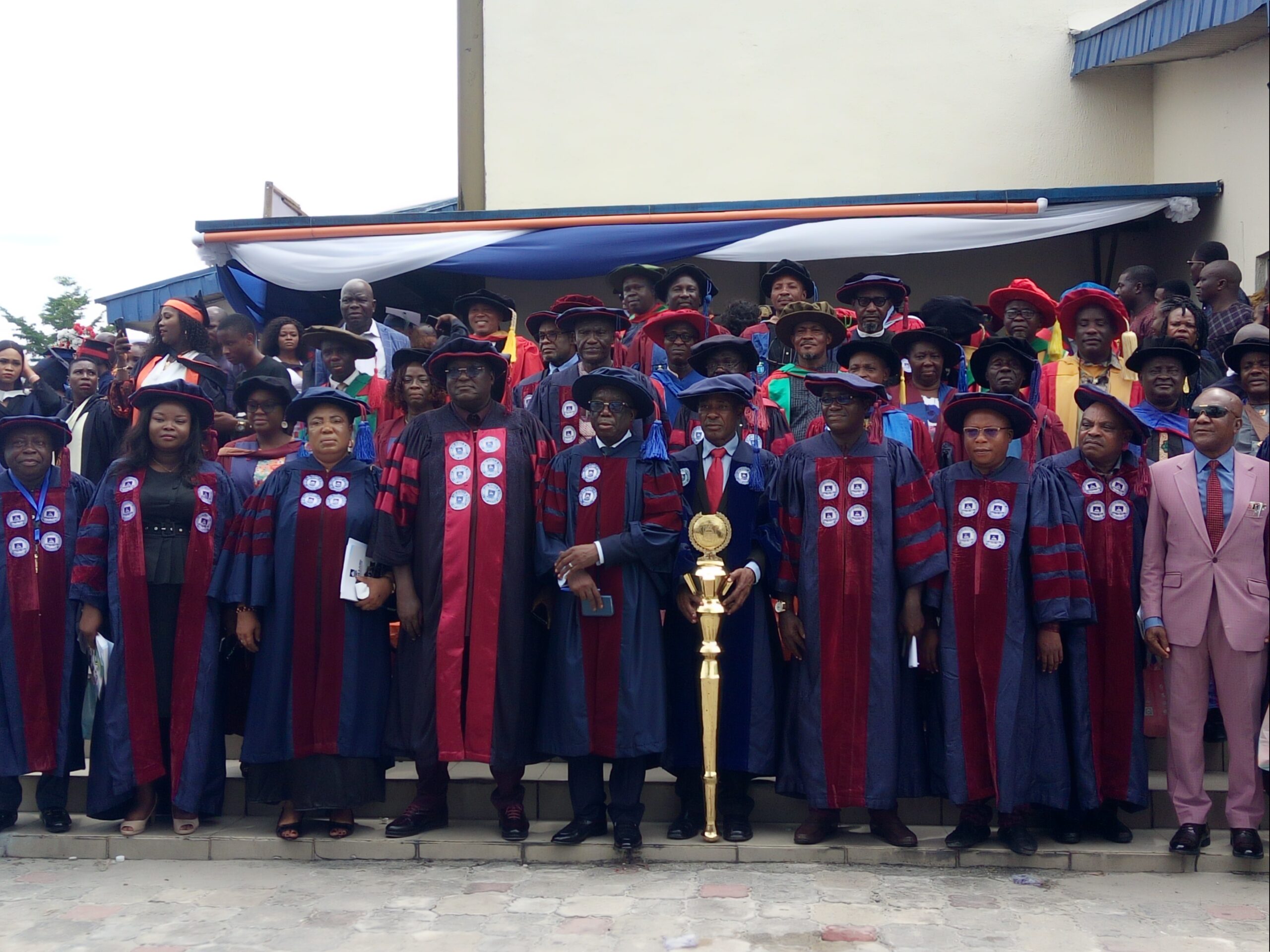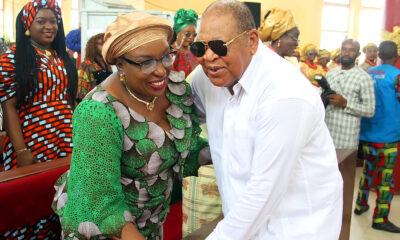Education
Secondary Schools Still Remain Shut In Nasarawa
Public secondary schools in Nasarawa State have remained shut in spite of the embattled Chairman of Nigeria Labour Congress, MrAbdullahi Adeka, announcing the suspension of workers’ strike on May 26.
By Friday, both teachers and students had not returned to classes, a check by journalists in some schools revealed.
Some newsmen visited were Government Secondary School, Laminga, Nasarawa Local Government Area, and Government Secondary School, Uke in Karu Local Government Area.
Others are Government College, Keffi in Keffi Local Government Area and Government Secondary School Akwanga in Akwanga Local Government Area.
The situation in the schools, however, contrasts with what obtains in some sectors of the public service, such as health, judiciary, which are still functional.
The labour union had called out the workers on an indefinite strike on May 12 over the payment of their salary arrears, payment of their full salaries, among others entitlements.
On May 26, Adeka, who was removed as the Chairman of the union, announced the suspension of the strike and said the government had begun meeting the demands of the workers.
But on May 27, Mr Bala Umar, who replaced him, urged workers not to resume work, insisting that the government had yet to meet their demands.
On Monday, May 29, Gov. Tanko Al-makura told stakeholders in the state that to the best of his knowledge, the workers were not on strike.
He said that any worker who refused to resume work did their own risk.
Meanwhile, some students have called for understanding between the government and the union to resolve the dispute in the interest of the education sector.
A student, Ibrahim Isah, said the strike was a setback to education sector.
“The on-going workers’ strike has affected our education negatively as academic activities have stopped in secondary schools and it may likely affect NECO examination in the state.
“The strike is unfortunate; no student will be comfortable staying at home,
‘’That is why I want to use this medium to appeal to the state government and the organised labour to dialogue in order to end the strike in our interest,” he said.
Bulus Jatau, another student, said: “we are still at home because of the strike and this is not fair.
‘‘Government should do something about it and the union should also have understanding with the government in order to end the strike,” he said.
Miss Janet Usman also appealed to the government and union to dialogue so as to end the strike.
She said the strike had crippled economic activities and affected the education sector negatively.
Some teachers, who pleaded anonymity, accused the state government of paying lip-service to the education sector.
They said that no nation could achieve speedy development without sound education and urged the state government to meet their demands. (NAN)
Education
Former VC Advocates Drug Test For University Lecturers

Prof. Muhammad AbdulAziz, the immediate past Vice Chancellor of Abubakar Tafawa Balewa University (ATBU), Bauchi state, has advocated drug tests for lecturers to sanitise the university system.
Mr AbdulAziz stated this in a valedictory speech to the Senate of the University at a handing-over ceremony to his successor, Prof. Sani Kunya, the new acting Vice Chancellor of the institution.
While commending the decision by the Federal Ministry of Education to introduce drug tests for students seeking admission to all universities, he said such tests should be extended to lecturers.
According to him, it would further sanitise the university system and promote sanctity and academic excellence.
“We have discussed with the Federal Ministry of Education and they want to introduce to all universities that before any student would be registered in the universities, he or she must undergo drug tests.
“If students should undergo drug tests, I believe that even some of us, the lecturers, need to undergo the same test so that we know our status.
“We also have to volunteer ourselves to have this test done on us because we have to sanitise the university.
“If the students are to be subjected to drug tests to determine their mental health status, nothing is wrong if the lecturers too are subjected to the same test.
That is the only way to check excesses in the university system,” he said.
Mr AbdulAziz said the modest achievements recorded during his tenure were in the areas of infrastructural development, academic content development and community services.
He said the achievements recorded could not have been made possible without the support of all stakeholders in the system.
He appreciated the federal government for the support rendered to the University through the Federal Ministry of Education and its various agencies like the National Universities Commission and the Tertiary Education Trust Fund.
Read Also:Students to undertake drug test before admission UniAbuja
Also speaking, the new acting VC of the university expressed gratitude to the Senate for finding him worthy of the honour and to the federal government for his confirmation.
“I want to assure you that I will justify the confidence reposed in me by not disappointing you all.
Education
Don Seeks 20%Increased Budget Allocation To Education

A Professor of Economics in the Faculty of Social Sciences University of Port Harcourt, Rivers State, Prof Willie J. Okowa has called on government at all levels to increase her Education sectorial budgetary allocation to twenty percent of their annual budget , saying that such efforts will improve the development of education in the country.
Okowa said each government wether local, state or federal governments should devote an increased proportion of her annual budget to education such that in the next five to ten years , so that we can see at least 20 percent of her budget to the education sector.
He made this call while presenting the 42nd convocation lectures at the just concluded Iaue convocation ceremonies held at the university auditorium in port harcourt, recently.
He posisted that the economy has a nexus with sustainable higher education to the effect that a robust economy plays a key role in the sustainability of higher .education , while a sustainable higher education plays a supportive economic growth and development
“On the hand,a failing economy can hardly support a sustainable higher education”.
According to him ,a growing economy easily provides the finances to fund sustainable higher education while a education provides the relevant skills and the manpower needs required to propel economic growth and development,”of course, The Inadequate provision of higher educational facilities will fail to the manpower needs required by the economy to support its growth and development”
“The ability of an economy to adquately find higher education also depends on the rate of the population ,the higher the rate of growth of population, the more the number of the people that require higher education .Hence ,a rapid population growth puts more pressure on the ability of the economy to adquately fund higher education, irrespective of its performance.”
“Population growth , economic growth and the adequate funding of higher education are therefore intricately interlinked.The adequacy of the funds that an economy provides to finance higher education also depends on how well the managers of our education institutions manage such funds.
If people who lack character , integrity and merit are appointed to helms of affairs institutions,then funds can hardly be adequate .on the other hands ,if people of character, integrity and merit are given such appointments ,then the outcome will be much better” he stated.
The erudite scholar opined that Nigerian universities and colleges are also passing through strange times and outlined outdated laboratories , inadequate classrooms, adding that many students involved in drugs and prostitution.
By: Akujobi Amadi
Education
Bauchi Govt Threatens To Revoke Scholarship Of Unserious Students

The Bauchi State government has cautioned that it will cease payment of external exam fees for Senior Secondary Three, SS3 students found skipping classes.
Commissioner for Education, Jamila Dahiru gave the warning in Bauchi during her school resumption inspection and monitoring visits to some schools on Wednesday.
The Tide’s source recalls that Governor Bala Mohammed earlier allocated N396.9 million for the 2023/2024 external exams of 14,170 students in public schools.
The external examinations paid for included the West African Examination Council, WAEC, the National Examination Council l, NECO, National Board for Arabic and Islamic Studies (NBAIS) and the Joint Admissions and Matriculation Board, JAMB.
However, the Commissioner, who was furious with the low level of attendance of especially the SS3 students in some schools, recounted how she met less than 20 percent of the SS3 students who were around when she visited a particular school.
She stressed the need for students to return to class and prepare diligently, threatening to revoke scholarships for ‘unserious ones.’
Her words: “We just realised that most of these students, after being taught from JSS1 to SS3 and with Gov. Bala Mohammed paying for their external exams, and as soon as they were done with their mock exams, they left school and won’t return until the first day of their external exams.
“It is sad to acknowledge that we are not responsible as parents because I want to believe that they have parents who are seeing them attending schools simply because they are getting ready to just write their external examinations.
“We want to make them come back to class, we want to emphasize that we are investing in the right people because it is just telling us that it is the government that bothers about their education while they don’t care and probably their parents that are allowing them to stay at home also do not care.
-
Rivers3 days ago
Students Want IAUE VC Confirmed
-
Entertainment3 days ago
Halliday Attributes Collaboration Hindrance To Sentiments, Others
-

 Business11 hours ago
Business11 hours agoFuel Scarcity’ll Last For Two More Weeks -IPMAN
-

 Opinion9 hours ago
Opinion9 hours agoOther Sides In Junior Pope’s Death
-
News3 days ago
How Ex-HoS, Oyo-Ita, Others Diverted N3bn To Private Companies -Witness
-
Opinion3 days ago
The Nigerian Police We Want
-
Sports3 days ago
Siasia Blames NFF Over FIFA Ban
-

 News10 hours ago
News10 hours ago82nd Birthday: Odu Eulogises King Dandeson Jaja

